High heels row: MPs 'shocked' by women's dress code stories
- Published
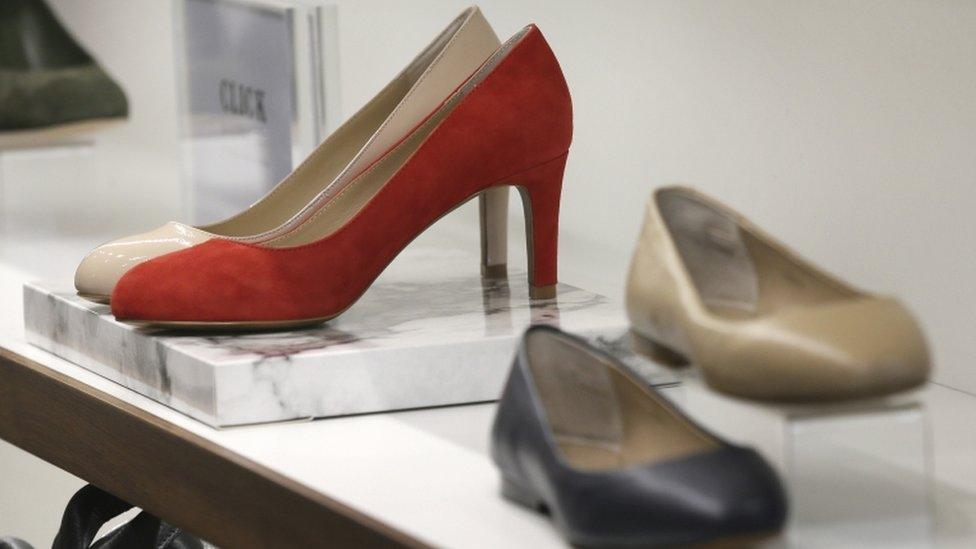
More than 152,000 people signed the petition calling for a ban on forcing women to wear high heels at work
An inquiry into work dress codes has exposed "widespread discrimination" against women, MPs have said.
The investigation was prompted by a petition, being debated by MPs, that called for a ban on requiring women to wear high heels at work.
MPs said they were "shocked" by stories submitted as part of the inquiry, which included one case of a woman who had been told to dye her hair blonde.
The government has said no employer should discriminate on gender grounds.
Work dress codes "must be reasonable", it said.
More than 152,000 people signed the petition, external set up by Nicola Thorp, from London, after she was sent home from her temp job when she refused to wear shoes with a "2in to 4in heel".
It was debated in Parliament because it reached more than 100,000 signatures.
Helen Jones, who chairs the Petitions Committee, said : "It is fair to say that what we found shocked us.
"We found attitudes that belonged more [to the] - I was going to say 1950s but probably the 1850s might be more accurate - than the 21st Century.
MP Helen Jones: Inquiry found "outdated attitudes" to women in workplaces
"[The inquiry] has exposed widespread discrimination against women, stereotypical views of what women should look like and dress like and behave like.
"It's shown up out-dated attitudes towards women in the workplace, and it has shown that constantly women are belittled when they try to challenge those attitudes."
She said there was a "long way" to go to solve the problems, but "everyone in the workplace deserves better than this".
Speaking in the same debate, Labour's Gill Furniss said her daughter had suffered a metatarsal fracture having had to wear high heels in a retail job.
"Quite literally adding insult to injury, she was denied any compensation or sick pay as she wasn't on the payroll for long enough," she added.
Long-term damage
The committee published its findings in a report in January, which said hundreds of women had shared their stories about the pain caused by wearing high heels for long periods, requirements to wear revealing outfits and constantly reapply make-up.
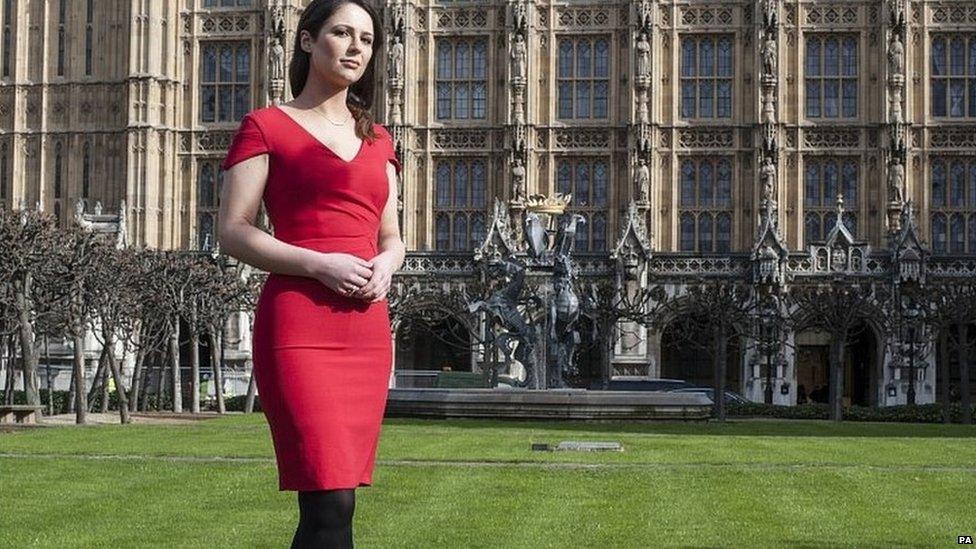
Nicola Thorp launched the petition after she was sent home from work
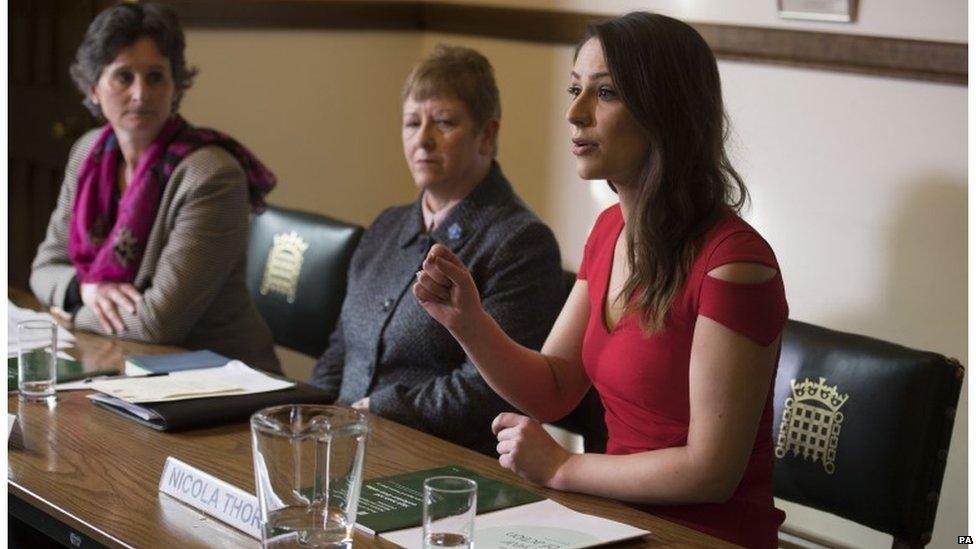
She took part in a panel discussion before the debate
It said discriminatory dress codes were "widespread" and the existing law was "not yet fully effective in protecting employees from discrimination at work".
The petitions committee called on the government to review the law and to ask Parliament to change it if necessary, to make it more effective.'
1970s diktat'
It also recommended that the government "substantially increases" the penalties available to employment tribunals which find against employers.
For the government, Equalities Minister Caroline Dinenage urged employers to review dress codes and make "dodgy 1970s workplace diktats" a thing of the past.
She has written to key trade bodies about the "outdated and sexist employment practices" uncovered in this case.
She said: "We have had anti-discrimination laws in this area for more than 40 years, yet it is a safe bet that these sort of dress codes have existed under the radar, with female employees putting up with discrimination because that is the way things are.
"Shod in heels or flats, we are collectively putting our foot down and attitudes are changing.
"This petition has brought that change very clearly into the public domain."
Women should not be expected to wear things that caused discomfort or expense that a male colleague would not, she added.
"I must reiterate that the government utterly condemns such dress requirements where their effects are discriminatory."
- Published9 June 2016
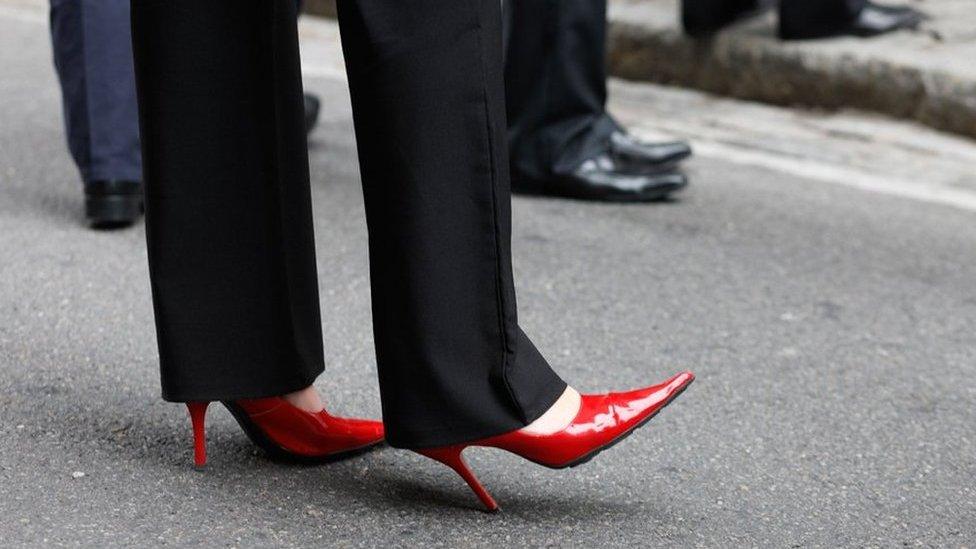
- Published12 May 2016

- Published11 May 2016
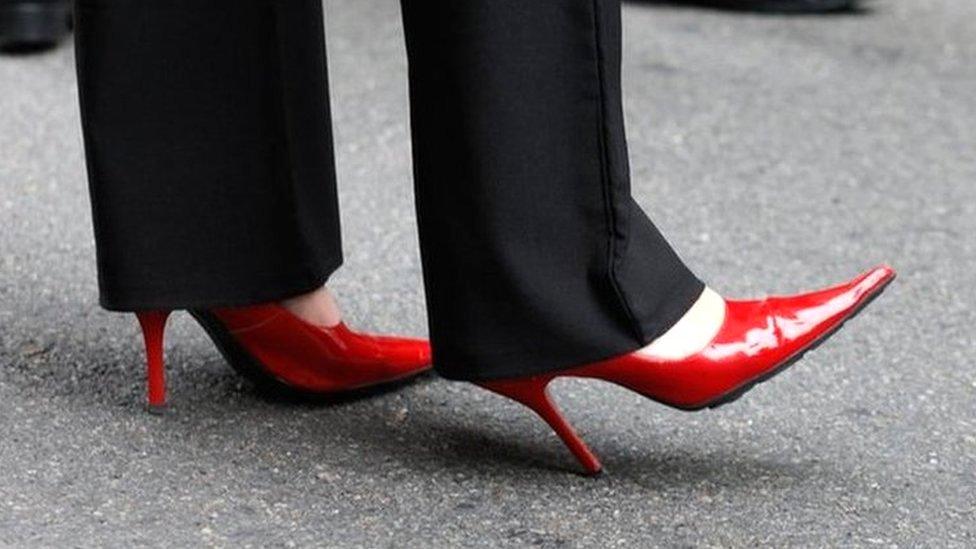
- Published11 May 2016
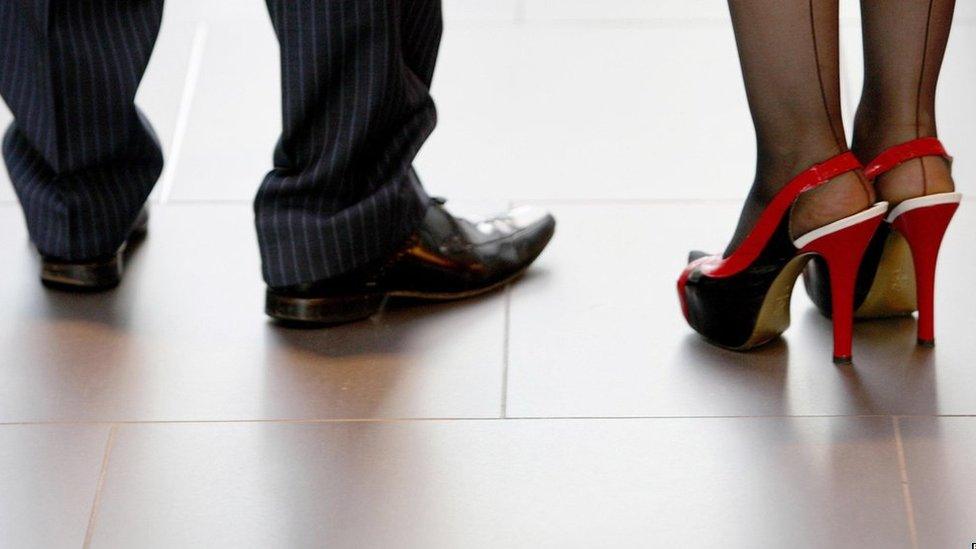
- Published11 May 2016

- Published30 October 2015
